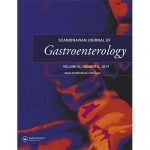Clinical response to fecal microbiota transplantation in patients with diarrhea-predominant irritable bowel syndrome is associated with normalization of fecal microbiota composition and short-chain fatty acid levels
 Objectives:
Objectives:
Irritable bowel syndrome (IBS) may be associated with disturbances in gut microbiota composition and functions. We recently performed a study of fecal microbiota transplantation (FMT) in diarrhea-predominant IBS (IBS-D) and found that IBS symptoms improved and the gut microbiota profile changed following FMT.
We now aimed to explore the effects of FMT on the gut microenvironment in further detail by using 16S rRNA sequencing for more extended microbiota profiling and analyzing bacterial fermentation products (SCFAs: short chain fatty acids).
Materials and methods:
The study included 13 patients (four females and nine males) with IBS-D according to Rome III criteria and 13 healthy donors. Freshly donated feces were administered into duodenum via gastroscopy.
The patients completed symptom and quality of life (QoL) questionnaires and delivered feces before and 1, 3, 12 and 20/28 weeks after FMT. Microbiota analysis was performed by sequencing 16S rRNA gene with Illumina Miseq technology. Fecal concentrations of SCFAs were analyzed by vacuum distillation followed by gas chromatography.
Results:
Several gut microbiota taxa and SCFAs were significantly different in the patients at baseline compared to their donors. These differences normalized by the third week following FMT in parallel with significant improvement in symptoms and QoL. Responders had different gut microbiota profile and SCFAs than nonresponders. Significant correlations were found between the gut microenvironment and IBS symptoms. No adverse effects were reported.
Conclusions:
FMT restores alterations of the gut microenvironment in IBS-D patients during the first 3 weeks and improves their symptoms for up to 28 weeks.
Mazzawi T, Hausken T, Hov JR, Valeur J, Sangnes DA, El-Salhy M, Gilja OH, Hatlebakk JG, Lied GA.
Scandinavian Journal Gastroenterology, June 2019, Volume 13, pp. 1−10
doi: 10.1080/365 521.2019.1 624 815
